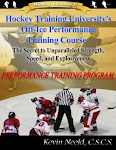
Widely recognized as the world's oldest competitive sport, wrestling has featured in every Olympic games since its ancient conception.
The are two styles of wrestling at the modern Olympics - freestyle and Greco-Roman. While the rules are almost identical, Greco-Roman wrestlers must not use the legs to trip or lift an opponent or attack an opponents legs.
Successful wrestling training for both disciplines must develop a high level of anaerobic power in both the arms and the legs and excellent strength endurance. With bouts lasting up to a maximum of 5 minutes (depending on the age and level), high levels of blood lactate can accumulate in wrestlers from frequent intense bursts of activity and minimal rest periods.
Anaerobic endurance and capacity are more probably more important to the wrestler than pure aerobic endurance. Aerobic power is average in national wrestlers although values as high as 70mls/kg/min have been recorded in elite level wrestlers.
A major consideration for wrestlers is weight management. Rapid weight loss to make a weight category has profound adverse effects on the wrestler's physiology, particularly in relation to strength endurance. Both nutritional and training techniques can help to minimize any weight reduction required in the first place and also to minimize the negative effects of rapid weight loss.
Strength training will obviously play a significant role in a wrestler's overall training plan. A bodybuilding approach however is not the most effective use of training time and may result in significant weight gain. Maximal strength training is more sport-specific and is not associated with significant hypertrophy. It can also be converted into strength endurance and power endurance, two physical traits crucial to a high level of performance.
The articles below cover important wrestling training elements. Take a look through the articles covering strength and power training for wrestling, endurance training and planning an a periodized program.
The are two styles of wrestling at the modern Olympics - freestyle and Greco-Roman. While the rules are almost identical, Greco-Roman wrestlers must not use the legs to trip or lift an opponent or attack an opponents legs.
Successful wrestling training for both disciplines must develop a high level of anaerobic power in both the arms and the legs and excellent strength endurance. With bouts lasting up to a maximum of 5 minutes (depending on the age and level), high levels of blood lactate can accumulate in wrestlers from frequent intense bursts of activity and minimal rest periods.
Anaerobic endurance and capacity are more probably more important to the wrestler than pure aerobic endurance. Aerobic power is average in national wrestlers although values as high as 70mls/kg/min have been recorded in elite level wrestlers.
A major consideration for wrestlers is weight management. Rapid weight loss to make a weight category has profound adverse effects on the wrestler's physiology, particularly in relation to strength endurance. Both nutritional and training techniques can help to minimize any weight reduction required in the first place and also to minimize the negative effects of rapid weight loss.
Strength training will obviously play a significant role in a wrestler's overall training plan. A bodybuilding approach however is not the most effective use of training time and may result in significant weight gain. Maximal strength training is more sport-specific and is not associated with significant hypertrophy. It can also be converted into strength endurance and power endurance, two physical traits crucial to a high level of performance.
The articles below cover important wrestling training elements. Take a look through the articles covering strength and power training for wrestling, endurance training and planning an a periodized program.























No comments:
Post a Comment